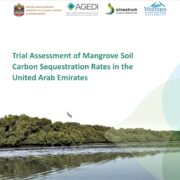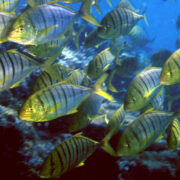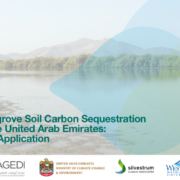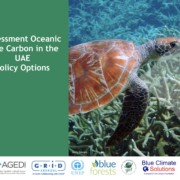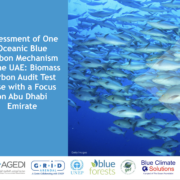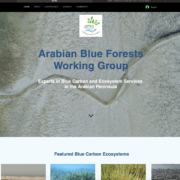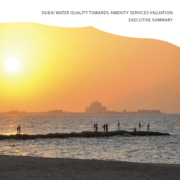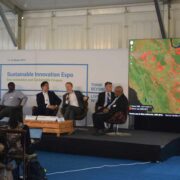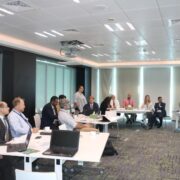Final report of the UAE Mangroves Annual Carbon Sequestration Trial Assessment now available!
The UAE Mangrove Annual Carbon Sequestration Trial Assessment quantified annual carbon sequestration rates of mangroves in the UAE through radiometric means (Lead-210 and Cesium-137). Such methods offer the most appropriate means to determine carbon sequestration rates for national inventories and coastal management planning. Five sites were selected with 2 samples collected and analyzed, each representing both healthy and areas under stress.
The study finds that soil carbon sequestration rates can be gathered from the mangrove forests in the Khors of the United Arab Emirates through Lead-210 dating, with a calculated total average of 57.67 grams of organic carbon, per square meter, per year (57.67 ± 2.90 g Corg m-2 yr-1) sequestered across all 10 trial sites. This is equivalent to carbon sequestered at a rate of 0.5 tons per hectare per year, in addition to the carbon stocks stored within mangrove tree biomass.
While this carbon sequestration value is only about 1/3 to 1/2 of wet mangrove tropical areas of the world, it is far higher compared to terrestrial soils of arid regions. Carbon sequestration rates found in the UAE are relatively higher compared to other reported rates around the Arabian peninsula.
It is recommended that the governments of the UAE conserve and restore mangrove forest to maintain the richness of the UAE coastal ecosystem, and to maintain the ecosystem services these provide.
Download and read our full report here:

